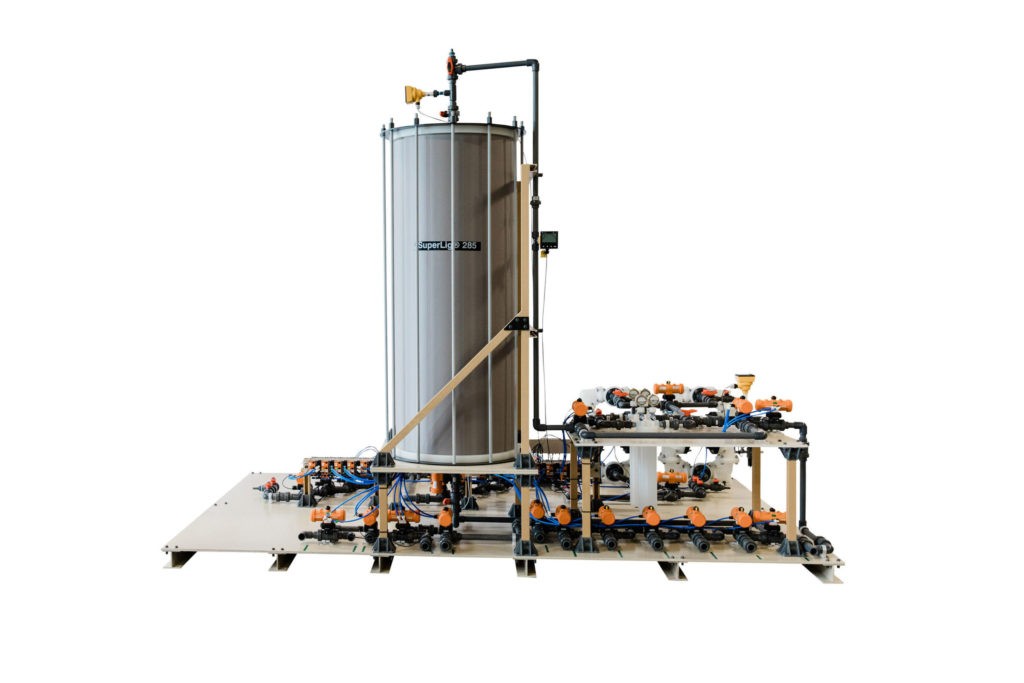IBC demonstrates high yield direct lithium to product process


IBC Advanced Technologies (IBC) announced Phase One results of the direct lithium to product (DLP) pilot plant currently operating at Salar de Maricunga, Chile. The pilot plant has undergone validation testing and Phase 1 results demonstrate highly selective, high-yield direct lithium extraction from brine and high water efficiency.
Production of lithium is reported at 9 g/L concentrated pure lithium in the eluate solution, meeting the Phase 1 design specification, with optimization to 10 g/L lithium slated for upcoming phases, without extracting or evaporating water from the salar.
DLP is a self-contained process that produces battery-grade lithium end-products at the same site as lithium extraction.
The first step in the DLP process is highly selective direct lithium extraction from brine using a fully-automated molecular recognition technology (MRT) system built by IBC. Brine is flowed through the MRT system containing SuperLig 285 resin beads (manufactured by IBC) packed into a column.
As brine passes through the MRT column, lithium is selectively extracted and rapidly loaded onto the SuperLig 285 resin at high capacity. Elution (or stripping) of the lithium from the loaded SuperLig 285 resin results in a concentrated, pure lithium eluate solution. A small amount of water is used to wash the SuperLig 285 column. The treated (lithium-depleted) brine (with the small amount of water) can be reinjected into the salar. Water used in the remainder of the DLP process is completely recycled.
Lithium hydroxide monohydrate is produced directly, without the need to first produce lithium carbonate. The DLP process avoids the conversion of lithium carbonate to lithium hydroxide, which requires an environmentally damaging process wherein up to 20% of the lithium is lost. Depending on the market price, this large operational inefficiency cost can amount to tens of thousands of dollars per ton of lithium carbonate equivalent produced.
The DLP process uses no organic solvents or harsh chemicals. The primary consumable of the DLP process is electricity. All processing to final end-product is done on site.
"The installation and start-up of the DLP Pilot Plant, incorporating MRT, is the first step to environmentally sustainable, ESG positive production of lithium from Salar de Maricunga brine. The revolutionary DLP process promises to completely transform the processing of lithium and the structure of the lithium-producing industry,” José Joaquín Matte, manager of new businesses of the Errázuriz Group.
“We are very pleased with the Phase 1 results. The DLP process has proven to be far superior to other processes based on solar evaporation ponds or direct lithium extraction (DLE) that are inefficient, consume large amounts of water and require extensive, costly, environmentally damaging and energy intensive processing to produce battery-grade end-products," Matte said
Comments